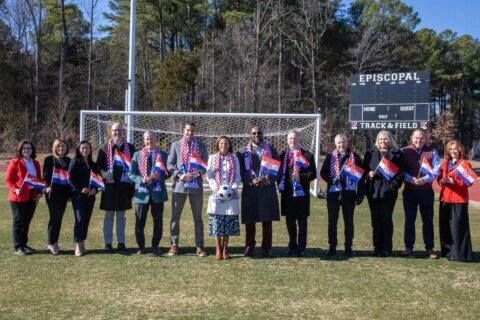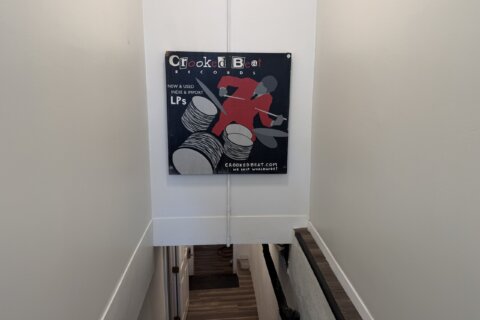Boeing is chipping in $50 million toward the Virginia Tech Innovation Campus in Alexandria, Virginia, and it’s the biggest donation in Virginia Tech’s history, the university said.
In a statement Tuesday, the university said that the money would help it create “the most diverse graduate technology campus in the United States.”
The multiyear commitment will help build the campus, as well as fund scholarships, fellowships and academic programs for university students and to help steer a diverse group of K-12 students toward the technology fields.
Some of the uses for the money, according to the statement:
- Full scholarships to attract, retain, and propel a diverse cohort of master’s degree students.
- Additional scholarships for potential future students looking to complete prerequisite courses and qualify for Innovation Campus admission.
- Ph.D. fellowships to attract a highly skilled and diverse cohort of researchers.
- A data-driven approach to inclusion- and diversity-focused student recruitment.
- A student success center, providing wraparound academic support.
- Programs that provide opportunities for non-traditional undergraduates, including veterans, to eventually enroll and succeed at the Innovation Campus.
- A scalable, K-12 STEM engagement program that will drive the future of diversity in the technology sector.
- Funding for a K-12 program director who will develop, implement, and lead a strategy to expand access to technology related disciplines.
A succession of university and government officials at the announcement ceremony lauded the donation and the importance of the emphasis on diversity.
Lance Collins, Virginia Tech’s vice president for the Innovation Campus, said the point of the Innovation Campus was to create “both a place and a culture that unlocks the potential of diverse people to solve the world’s most pressing problems through technology.” The money from Boeing, he added, would make things possible immediately “that we were thinking we would get started in a couple of years.”
Women and minority groups that have been underrepresented in technology bring “a diverse set of ideas to the table,” Collins said, and “We want to enable those groups to come, and bring the perspectives that they bring.”
Boeing CEO David Calhoun said developing talent was the most important challenge for his industry going forward: “Once a week, we get together and talk about our biggest needs, and it’s this. … And all our competitors do the same thing.”
As with many of the speakers, Calhoun invoked the metaphor of a “pipeline” of talent, and said the diversity emphasis in the company’s commitment was no accident.
“We want to leverage everything the state of Virginia has done to promote underrepresented populations, to give them opportunities. We want to be in on that.”
“Businesses need a talented work force,” Virginia Gov. Ralph Northam said. “It’s what keeps businesses growing and what keeps our economy growing.”
Sen. Mark Warner pointed out that Virginia’s population was about 35% people of color and rising.
“It is not only the right moral thing to do, to make sure everybody participates, but from a plain old return on investment, if we don’t have that 35% be part of the pipeline, then Virginia, and the rest of the United States, is not going to be able to succeed.”
He also spoke of the strategic importance of technology education, specifically referring to the Communist Party of China.
“We are seeing in China an emerging competitive threat,” Warner said. “This is one of the few remaining issues where there is wide bipartisan agreement. … The competition of the 21st century will be military, but even more, technology-based.”
He listed off billions of dollars in emergency funding coming from Congress for priorities such as 5G, artificial intelligence, quantum computing, life sciences and more. “If we do this right, we should get a big piece of both the research dollars and the talent pipeline.”
“People will [mention] Hokie Landing in the same breath with MIT, Caltech, Carnegie Mellon and Rice,” said Rep. Don Beyer. “I just can’t wait to see what happens.”
The campus is expected to open in 2024.







